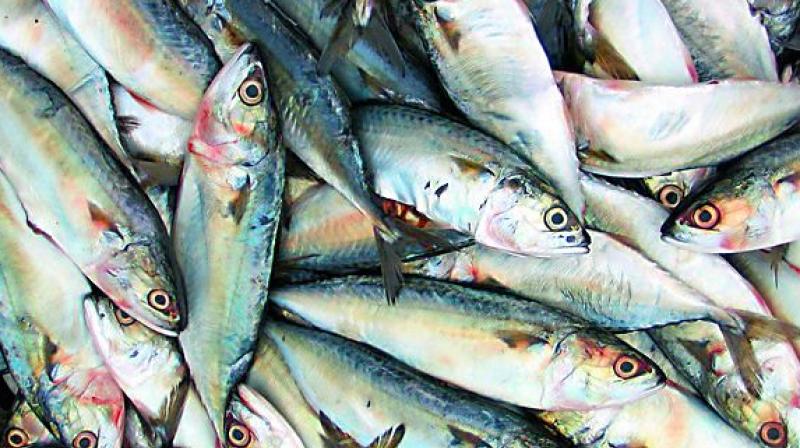JOB DESCRIPTION
Regional Bio Medical Engineer, Foundation for Innovative
New Diagnostics (FIND), India
1. POSITIONS VACANT: Regional Biomedical Engineer(RBE); FIND India, South Region (State) and North-East (State).
2. ORGANIZATION BACKGROUND:
The Foundation for Innovative New Diagnostics (FIND), is a leading not-for-profit organization based in Geneva, Switzerland, that enables the development and delivery of much-needed diagnostic tests for poverty-related diseases including, tuberculosis, malaria, sleeping sickness, hepatitis C, HIV, leishmaniasis, buruli ulcer and chagas disease.
FIND acts as a bridge between experts in technology development, policy and clinical care, reducing barriers to innovation and effective implementation of diagnostic solutions in low- and middle-income countries.
FIND has active collaborations with more than 100 partners, including research institutes, academia, health ministries and disease control programmes, commercial partners, the World Health Organization, bilateral and multilateral organizations and clinical trial sites.
Over the past 12 years, FIND has supported the development of 11 new diagnostic tests that address diseases of poverty. FIND has also established critical resources for the development of many other tests, including specimen banks, critical reagents, product profiles and policy briefs that provide better visibility on pressing diagnostic needs. FIND’s work in these areas reflects a willingness to address market entry barriers for diagnostics globally.
Represented in India through a Liaison Office at New Delhi, FIND has recently registered as a not-for-profit company under Section 8 of the Companies Act. The organization is presently engaged in the development of new diagnostic techniques for TB, HIV, Hepatitis C, Malaria and neglected tropical diseases, across the world and specifically for MDR-TB in India.
3. JOB DESCRIPTION/ RESPONSIBILITIES:
The RBE will be responsible for the overall management, supervision, and coordination of project activities relating to laboratory upgrades. H/She will be responsible for controlling the project schedule and cost through the efficient use of all resources including manpower, materials, tools, and equipment.
Key Responsibilities:
(1) Coordinating with assigned sites, BMEs, procurement agency, FIND procurement section, identified AMC / lab-gradation agency for equipment and TB containment lab related matters and work plan;
(2) Monitoring equipment handling during on-site visits and providing on-site training/mentoring on equipment know how to lab staff;
(3) Providing timely inputs to the organization on critical issues identified in field for equipment/ infrastructure maintenance;
(4) Monitoring/observing the activities of vendors for a few costly repairs/new maintenance activities on-site;
(5) Oversee the adherence to the equipment warranty, annual maintenance contract and provide technical know-how for reporting and rectification of breakdown, as required;
(6) Preparing and maintaining the inventory of lab equipment in coordination with BMEs and sites;
(7) Providing assistance in the identification of laboratory equipment vendors and design engineering partners;
(8) Coordination for the delivery, installation, start- up procedures and certification of lab equipment;
(9) The job responsibilities involve travel to various implementation sites;
(10) Preparing and circulating all memos and minutes of meetings to the project team;
(11) Developing lab layouts; expected to have a good working knowledge of bio-safety, TB labs, layout, lab designing, Auto-CAD etc;
(12) Preparing technical specifications for laboratory up-gradation, procurement of equipment and facilitating their inclusion in tender documents;
(13) Coordinating and follow up with the contracted agency and implementation sites for lab up-gradation work (TB containment, LPA, specimen processing room, other up-gradation work etc.);
(14) Maintaining timely and effective communications with the BMEs and Medical Officer / Site I-C to prevent project delays, cost overruns or client dissatisfaction;
(15) Maintaining all required project documentation;
(16) Any other responsibilities as identified from time to time by the Medical Officer / Site IC, NFM Project Technical Lead and Head of Country Operations in India.
4. QUALIFICATION, SKILLS AND EXPERIENCE:
Qualifications and Experience:
Applicants must meet the following qualification requirements:
(1) A Biomedical engineering graduate from a reputed institute
(2) At least two years of proven experience in project management
(3) Having a sound understanding of all the appropriate regional and national building codes, and basic knowledge of Biosafety guidelines (WHO Biosafety Manual, BMBL, etc.) will be an added advantage;
(4) The person should have a good understanding of laboratory or healthcare engineering systems and controls (i.e. Mechanical systems, including plumbing, fire protection, heating, ventilating, air conditioning and temperature controls; electrical systems, including electrical distribution, lighting and special systems).
Skills and Attitude:
(1) Good oral and written communication skills;
(2) Strong team orientation;
(3) Ability to work independently, with minimum handholding and supervision;
(4) Willing to travel as per the need;
(5) Computer knowledge (Microsoft Office – Excel, Word, Outlook and Auto-CAD);
(6) Energetic, resilient and passionate;
(7) Professional, mature and confident.
5. COMPENSATION OFFERED:
Gross compensation budgeted for the position on a cost to the organization (CTO) basis is Rs. 3.6 lacs per annum. Please note that gross compensation is fully taxable.
(Note: Candidates shall be working on the payroll of SAMS, a leading HR Agency for the health and development sectors in India).
6. NATURE OF APPOINTMENT:
The selected candidate shall be initially offered till one year consultancy contract, renewable based on satisfactory performance.
7. LOCATION:
South Region (State) and North-East (State)
8. REFERENCE:
RBE-FIND
9. CONTACT INFORMATION:
Senior Consultant
Strategic Alliance Management Services P Ltd.,
1/1B (Ground Floor), Choudhary Hetram House,
Bharat Nagar, New Friends Colony, New Delhi -110 025;
(Landmark: Behind Mata Mandir)
Phone: 011+41653612; 26842162; 41011564, 41011565,
Email: rbe-find@sams.co.in
10. LAST DATE FOR APPLICATIONS:
Eligible candidates interested in this position are requested to apply with a cover letter that highlights their motivation to apply and suitability for the position, their updated resume and three references, to the above email id, at the earliest.
Note: It is mandatory to mention Age, Year of Passing the Degrees, Current and Past Employment dates on your resume, without which it will not be accepted.











